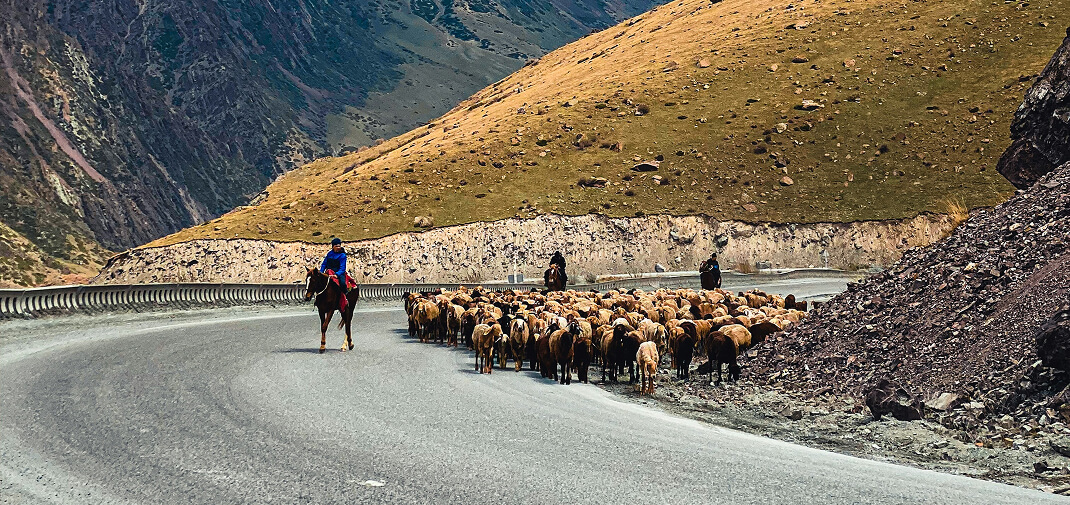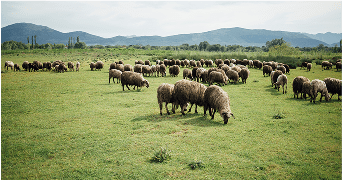
If you’ve recently been in a crash involving livestock, you are not alone—especially in rural parts of California, where cattle, horses, or other large animals can wander onto roads. These accidents can be frightening, dangerous, and confusing. You may wonder how to report the crash, who’s responsible, and what to say to insurance after hitting an animal so you don’t hurt your claim.
One wrong phrase could make the insurance company think you were at fault. This post will help you understand what to say and what not to say after a livestock collision.
Why Livestock Collisions Are Treated Differently Than Other Accidents
In California, hitting a wild animal like a deer is generally considered a no-fault accident. But when it comes to livestock, liability is not so simple. Someone may own the animal you hit. And if that person failed to secure their animals properly, they might be responsible for your damages.
However, insurance companies are rarely quick to accept liability. They’ll look for ways to shift blame, possibly even onto you. That’s why it’s important to be cautious when speaking to any insurance adjuster after this type of crash.
What to Say to Insurance After Hitting an Animal
When you report the accident to your insurance company, keep your language neutral and factual. Do not guess, speculate, or admit to anything.
Here’s the information you should include:
- Where and when the accident occurred,
- What you observed right before the crash,
- What actions you took immediately afterward, and
- The condition of your vehicle and any injuries.
Use clear, basic descriptions. For example, “I was driving at approximately 55 mph on a two-lane highway when a large animal ran into the road. I was not able to stop in time and hit the animal. I pulled over immediately and called 911.”
It’s also okay to say you don’t know something. If the animal’s ownership is unclear, just say so.
What Not to Say to Insurance After a Livestock Collision
Insurance adjusters are trained to pick up on anything that might reduce the amount they have to pay. A casual or honest comment can be used to minimize your claim. Avoid statements like:
- I didn’t see it coming,
- I should’ve braked sooner,
- I’m fine (especially if you’re not sure yet),
- It was just an accident, and
- I think it was a cow from the farm nearby (unless you’re 100% certain).
Even something as simple as saying you were tired or distracted could be taken out of context. Keep conversations short, calm, and factual.
Should You Talk to the Other Driver’s or the Ranch Owner’s Insurance?
If someone contacts you claiming to be from a livestock owner’s insurance company, do not give them a statement without legal representation. Their goal is to protect their insured, not you.
Even if the person seems friendly or sympathetic, they may try to get you to admit fault or settle for less than you deserve. Always talk to your attorney first.
Why You Should Talk to a Lawyer Before Giving a Recorded Statement
Many insurance companies will ask for a recorded statement shortly after a crash. This statement can be risky, especially if you’re still shaken or unsure about the details.
Recorded statements can:
- Be used later to challenge your credibility,
- Limit your options for recovery, and
- Lock you into an incomplete or inaccurate version of events.
If you’re dealing with insurance after a livestock accident, an attorney like Michael Joe Silva can guide you through the process, review your insurance policy, and help protect your rights. Your lawyer can often communicate with the insurance company on your behalf, so you don’t have to worry about saying the wrong thing.
Document Everything, Even Before Talking to Insurance
Gather as much evidence as possible before you speak to your insurance company. That will help support your version of events and strengthen your claim. Key documentation includes:
- A police report;
- Photos of the accident scene, your vehicle, and the animal;
- Medical records for any injuries;
- Statements from any witnesses who saw the crash; and
- Evidence of ownership of the animal, if known.
If you suspect the animal came from a nearby property, an attorney can investigate to determine whether negligence, such as broken fencing or a history of escaped animals, played a role.
Livestock Owners May Be Liable for Your Injuries
Under California law, livestock owners must prevent their animals from wandering on public roads. If a rancher failed to maintain a secure fence or gate, they could be held legally responsible for the crash.
However, proving this isn’t always easy. It requires investigation, evidence, and legal strategy, which an experienced attorney can handle.
Talk to a Lawyer Who Knows the Central Valley and Knows How to Fight
Livestock collisions can lead to serious injuries and costly repairs. Unfortunately, insurance companies are not always willing to do the right thing, especially if they think they can twist your words to avoid paying your claim.
Michael Joe Silva is a former prosecutor who has taken countless cases to trial. He uses that same courtroom experience to stand up for injury victims across the Central Valley. At Silva Injury Law, we know how to hold negligent parties accountable and fight to get you the compensation you deserve.
Let our legal team assist if you suffered injuries in a livestock collision and have questions about what to say to insurance after hitting an animal. Contact us today for a free consultation. We are here to help you recover with honesty, compassion, and strength.

